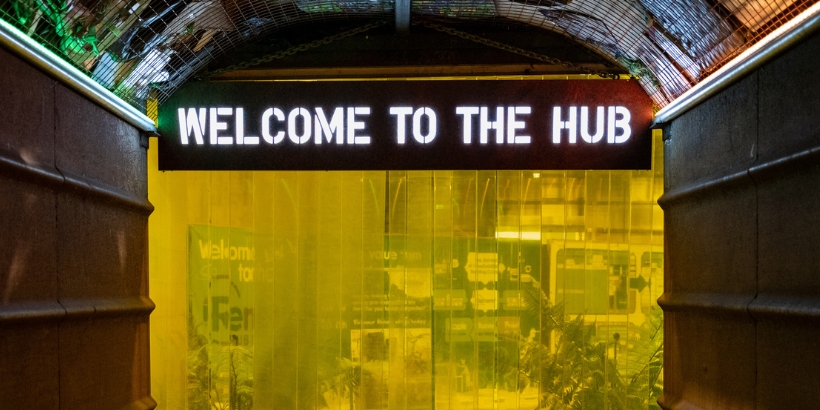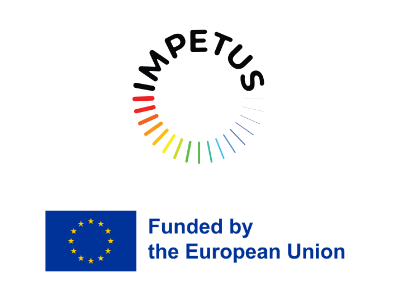انتقل إلى وضع عدم الاتصال باستخدام تطبيق Player FM !
Restart Podcast Ep. 98: It’s official, the UK needs more reuse options
Manage episode 445856999 series 123829
Have you ever binned or recycled something that was still working, or could have been repaired? Our new report says that the answer is likely, yes. Did you want to do so? Our polling suggests, no!
Last year, we conducted a small study on rates of reuse and repair at a waste and recycling centre in London and found that almost half of the small electricals that went to scrap, could have been either repaired or directly reused. We had our suspicions that this wasn’t a stand alone occurrence, so we set our sights on something bigger. In this episode, we talk to Restart’s own James Pickstone about our new BREW (Beyond Recycling of E-Waste) report into reuse at UK waste facilities, and Sarah Ottoway, Sustainability and Social Value Lead at SUEZ about their new report into uptake of reuse options at their own facilities.
The Headlines
The main – unfortunate but compelling – takeaway from the BREW report shows that there is nowhere near enough of this activity happening. In fact, we found that only around half of waste facilities in the UK have any kind of reuse stream and only around a fifth offer reuse for small electricals. It’s a shockingly low statistic that desperately needs to change. If you want to dive deeper, you’re in luck. James takes us on a journey through our findings and what they mean. Including an even more appalling figure on repair at waste facilities.
For SUEZ, their findings are looking a bit brighter. They found that the majority of visitors to the HWRCs were already users of the on-site reuse shop and regularly so. Furthermore, those who weren’t using the shop were already engaging in similar activities eg. charity shopping and buying second hand. It’s a welcome insight into people’s mindsets and a positive sign that more people are picking up sustainable habits.
The art of what could be
James and Sarah run us through what reuse options really look like at these facilities. One of the most impressive perhaps, is Suez’s 6,000² foot ‘renew hub’ in Manchester which caters for upcycling and repair for everything from bicycles, to fabric and upholstery, to woodworking. She is clearly immensely proud of what they have built there and recounts to us the inspiration that she feels just by walking through its entrance. It’s the kind of facility that we want to have in every area of the UK and its the kind of inspiration that we need to make it happen.
As well as the reuse initiatives at council run sites, James points out that there are also many grassroots initiatives spread out around the UK. These are a more than worthy alternative but they also still need funding.

So what’s stopping us?
Our polling showed that 85% of the British public think items brought to waste facilities should be kept in use through being repaired/refurbished or donated/sold. And the same percentage support government-set targets for reuse. So what’s stopping that from happening? We talk to both of our guests about the barriers and solutions to encourage more reuse options. Sarah says that a lot of the time, the barriers are actually quite practical. Issues of too little space, too little time and too little funding are preventing more options like reuse hubs or refurbish and repair programmes from popping up. These are problems that occur on a case by case basis and while reuse could use more funding as a general rule, its a tricky issue to solve.
But there is action that policymakers can be taking. Sarah and James both run us through some of these potential options including new reuse targets, removal of VAT on repairs and spare parts, and financial incentives for manufacturers to provide longer repair support for products. It’s exactly the kind of thing that we’re asking for in the UK Repair and Reuse Declaration – which has already proven popular with citizens and MPs alike.
Links:
- Learn more about our BREW report
- Read the full ORA report
- Read the full SUEZ report
- Read about our 2023 waste study
- Discover and sign the Repair and Reuse Declaration
[Images by Mark A Phillips, licensed under CC BY 4.0.]
The Beyond Recycling of E-Waste (BREW) project was supported, in part, by IMPETUS.
 IMPETUS is funded by the European Union’s Horizon Europe research and innovation programme under grant agreement number 101058677. Views and opinions expressed are, however, those of the author(s) only and do not necessarily reflect those of the European Union or the European Research Executive Agency (REA). Neither the European Union nor the granting authority can be held responsible for them.
IMPETUS is funded by the European Union’s Horizon Europe research and innovation programme under grant agreement number 101058677. Views and opinions expressed are, however, those of the author(s) only and do not necessarily reflect those of the European Union or the European Research Executive Agency (REA). Neither the European Union nor the granting authority can be held responsible for them.
The post Restart Podcast Ep. 98: It’s official, the UK needs more reuse options appeared first on The Restart Project.
235 حلقات
Manage episode 445856999 series 123829
Have you ever binned or recycled something that was still working, or could have been repaired? Our new report says that the answer is likely, yes. Did you want to do so? Our polling suggests, no!
Last year, we conducted a small study on rates of reuse and repair at a waste and recycling centre in London and found that almost half of the small electricals that went to scrap, could have been either repaired or directly reused. We had our suspicions that this wasn’t a stand alone occurrence, so we set our sights on something bigger. In this episode, we talk to Restart’s own James Pickstone about our new BREW (Beyond Recycling of E-Waste) report into reuse at UK waste facilities, and Sarah Ottoway, Sustainability and Social Value Lead at SUEZ about their new report into uptake of reuse options at their own facilities.
The Headlines
The main – unfortunate but compelling – takeaway from the BREW report shows that there is nowhere near enough of this activity happening. In fact, we found that only around half of waste facilities in the UK have any kind of reuse stream and only around a fifth offer reuse for small electricals. It’s a shockingly low statistic that desperately needs to change. If you want to dive deeper, you’re in luck. James takes us on a journey through our findings and what they mean. Including an even more appalling figure on repair at waste facilities.
For SUEZ, their findings are looking a bit brighter. They found that the majority of visitors to the HWRCs were already users of the on-site reuse shop and regularly so. Furthermore, those who weren’t using the shop were already engaging in similar activities eg. charity shopping and buying second hand. It’s a welcome insight into people’s mindsets and a positive sign that more people are picking up sustainable habits.
The art of what could be
James and Sarah run us through what reuse options really look like at these facilities. One of the most impressive perhaps, is Suez’s 6,000² foot ‘renew hub’ in Manchester which caters for upcycling and repair for everything from bicycles, to fabric and upholstery, to woodworking. She is clearly immensely proud of what they have built there and recounts to us the inspiration that she feels just by walking through its entrance. It’s the kind of facility that we want to have in every area of the UK and its the kind of inspiration that we need to make it happen.
As well as the reuse initiatives at council run sites, James points out that there are also many grassroots initiatives spread out around the UK. These are a more than worthy alternative but they also still need funding.

So what’s stopping us?
Our polling showed that 85% of the British public think items brought to waste facilities should be kept in use through being repaired/refurbished or donated/sold. And the same percentage support government-set targets for reuse. So what’s stopping that from happening? We talk to both of our guests about the barriers and solutions to encourage more reuse options. Sarah says that a lot of the time, the barriers are actually quite practical. Issues of too little space, too little time and too little funding are preventing more options like reuse hubs or refurbish and repair programmes from popping up. These are problems that occur on a case by case basis and while reuse could use more funding as a general rule, its a tricky issue to solve.
But there is action that policymakers can be taking. Sarah and James both run us through some of these potential options including new reuse targets, removal of VAT on repairs and spare parts, and financial incentives for manufacturers to provide longer repair support for products. It’s exactly the kind of thing that we’re asking for in the UK Repair and Reuse Declaration – which has already proven popular with citizens and MPs alike.
Links:
- Learn more about our BREW report
- Read the full ORA report
- Read the full SUEZ report
- Read about our 2023 waste study
- Discover and sign the Repair and Reuse Declaration
[Images by Mark A Phillips, licensed under CC BY 4.0.]
The Beyond Recycling of E-Waste (BREW) project was supported, in part, by IMPETUS.
 IMPETUS is funded by the European Union’s Horizon Europe research and innovation programme under grant agreement number 101058677. Views and opinions expressed are, however, those of the author(s) only and do not necessarily reflect those of the European Union or the European Research Executive Agency (REA). Neither the European Union nor the granting authority can be held responsible for them.
IMPETUS is funded by the European Union’s Horizon Europe research and innovation programme under grant agreement number 101058677. Views and opinions expressed are, however, those of the author(s) only and do not necessarily reflect those of the European Union or the European Research Executive Agency (REA). Neither the European Union nor the granting authority can be held responsible for them.
The post Restart Podcast Ep. 98: It’s official, the UK needs more reuse options appeared first on The Restart Project.
235 حلقات
Toate episoadele
×مرحبًا بك في مشغل أف ام!
يقوم برنامج مشغل أف أم بمسح الويب للحصول على بودكاست عالية الجودة لتستمتع بها الآن. إنه أفضل تطبيق بودكاست ويعمل على أجهزة اندرويد والأيفون والويب. قم بالتسجيل لمزامنة الاشتراكات عبر الأجهزة.




